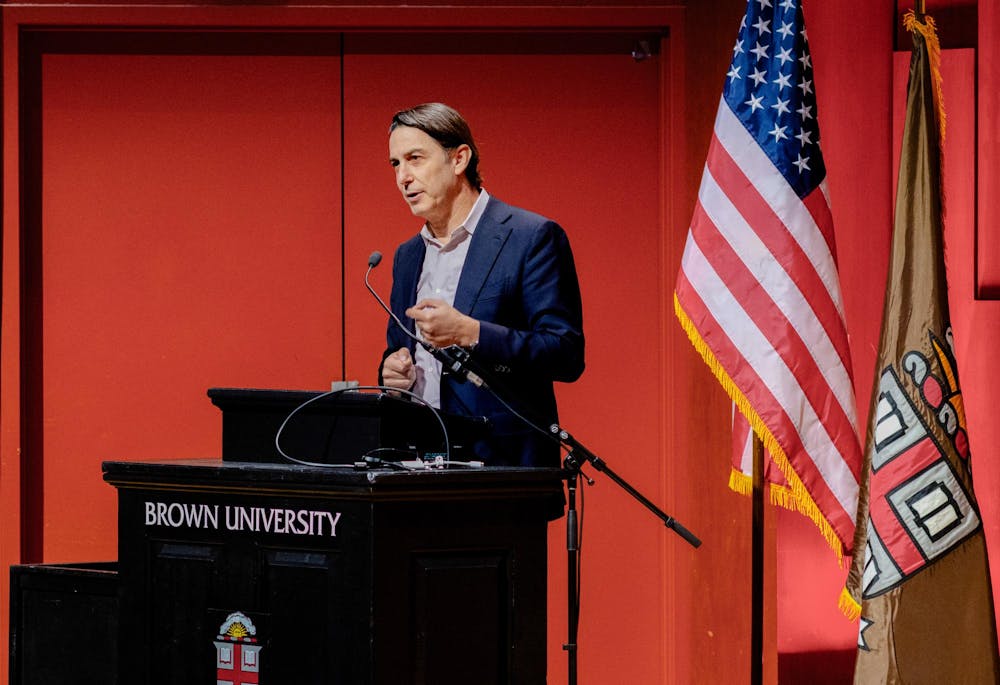On Sunday, the Brown Political Union hosted a conversation with former Special Envoy and Coordinator for International Energy Affairs Amos Hochstein, the lead negotiator for the Nov. 27, 2024 ceasefire agreement between Israel and Hezbollah.
At the lecture, Hochstein — previously a White House senior advisor to former President Joe Biden — discussed his career path in diplomacy and offered an inside look into tactics he used in peace negotiations to secure the ceasefire deal.
In his opening remarks, Hochstein described how a trip to Saudi Arabia in the ’90s changed the trajectory of his career by sparking his realization that several countries view foreign policy “very narrowly,” he said — a realization that would later inform his policy approaches.
Hochstein pointed to the Israel-Jordan connection of the Arab Gas Pipeline as evidence of how “critical infrastructure” forged economic ties between the two nations that acted as a deterrent to war by raising the economic cost of violent conflict.
“It sounds crazy to say — the cost of war, death, destruction — that’s not enough of an incentive to stop a conflict,” he said. “The economic side, oftentimes, is much stronger as an incentive.”
During the event, Hochstein said that policy negotiations often required him to balance the competing interests of public transparency and progress behind closed doors. “If we judged every idea at every moment,” he said, “everybody would be ridiculed for every idea.”
Hochstein also discussed President Trump’s recent imposition of reciprocal tariffs, after which the U.S. stock market faced its worst two-day stretch since 2020. “We have essentially decided to build a wall, or a moat, around the United States,” he said, calling the trade measures “quite draconian.”
“I fear that if we separate ourselves from our friends and allies, the reaction won’t be just a stock market collapse,” he said. “We will be the ones isolated.”
In 2021, when Hochstein took on a position in the White House, he said the U.S. faced a loss of credibility on an international level with allies questioning, “Why should I trust you?”
While negotiating the ceasefire between Israel and Hezbollah, Hochstein said that he prioritized gaining the support of the Lebanese people, rather than Hezbollah, in negotiating the deal. He tried “to convince the Lebanese people that this was the moment that they could get rid of this war,” he said.
Hochstein also touched on growing competition between the U.S. and China on a global stage, emphasizing the role of innovation in geopolitics.
“We are no longer the leader in clean energy, neither in innovation nor in investment,” he said, describing how China had made strategic investments in the sector.
BPU Officer Sohali Vaddula ’27 enjoyed learning more about what takes place “behind the curtain in the White House.”
“I think that having been a former advisor to President Biden and being involved in negotiating the ceasefire, he has a lot of insight into how foreign relations and foreign policy works,” she said.
“This gives you a different glimpse into what really goes on,” Vaddula added. “I think most people don’t get that from the media.”

Annika Singh is a senior staff writer from Singapore who enjoys rewatching Succession and cheating on the NYT crossword.





